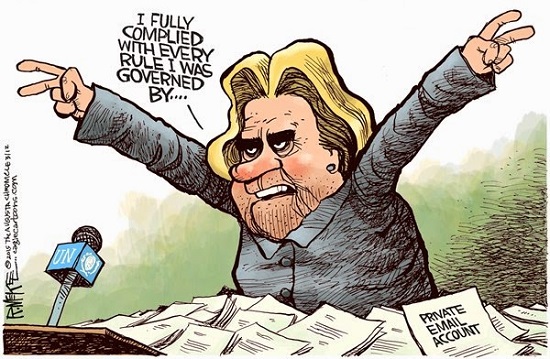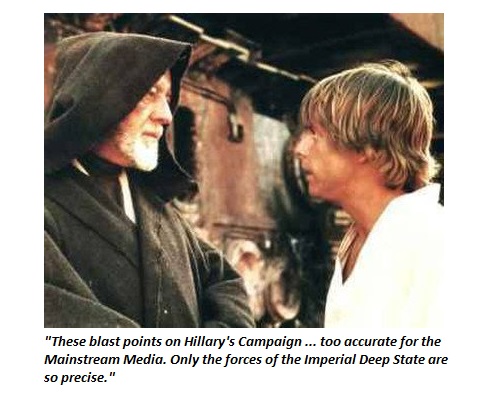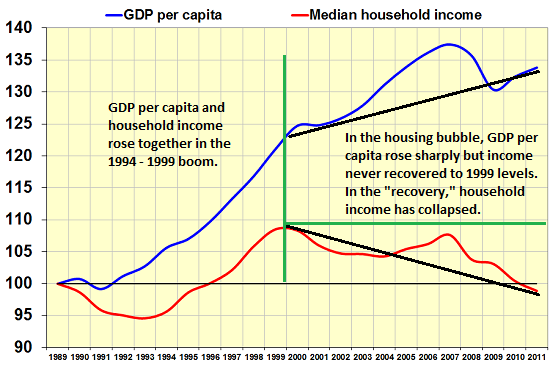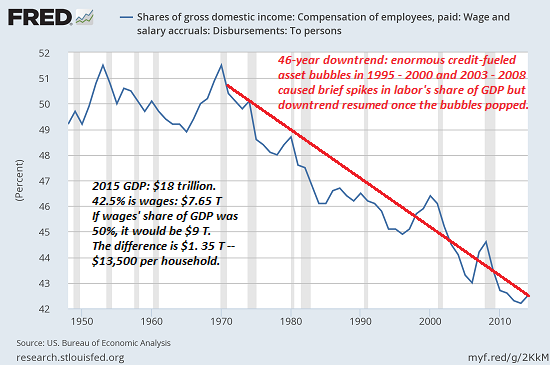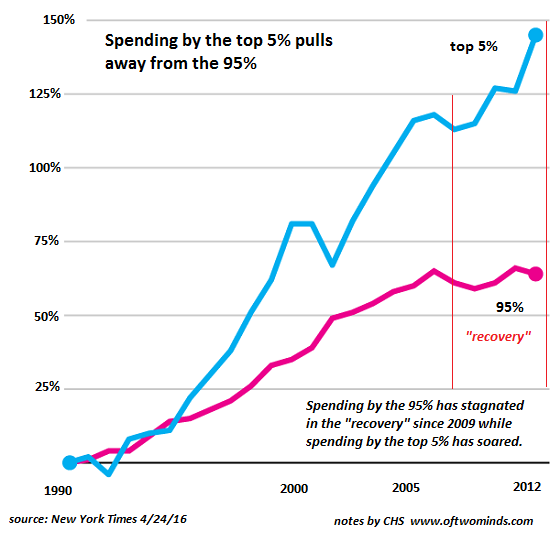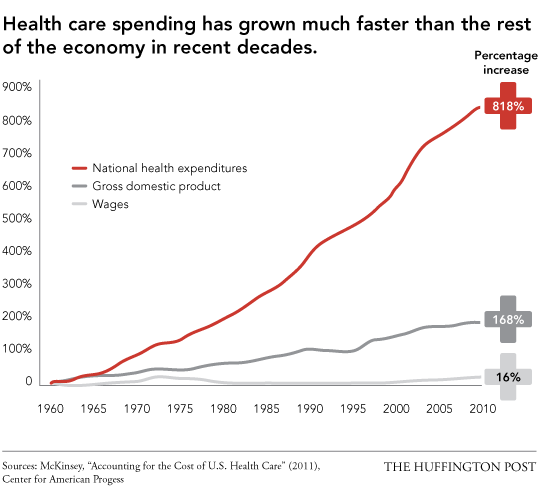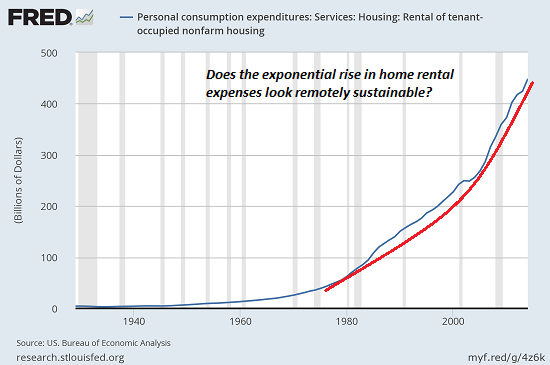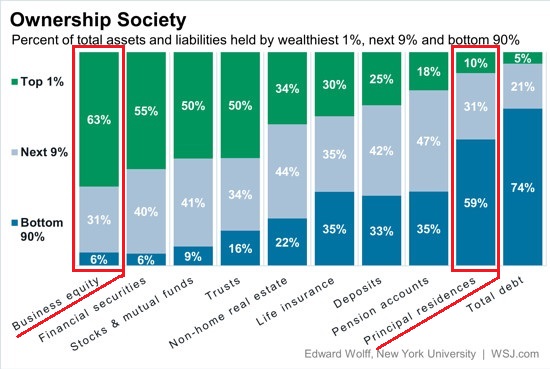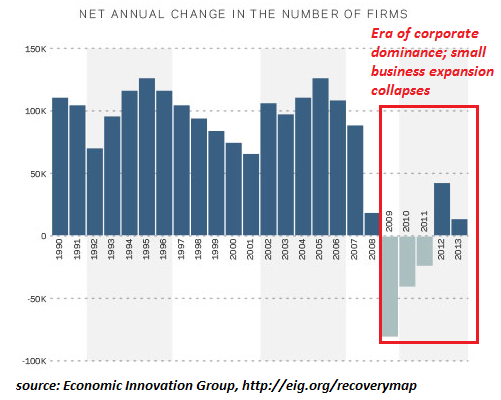There are still opportunities to not just earn a wage, but the overhead, profit and capital skimmed by global corporations.
So how can someone earning $15 an hour as an employee get ahead? The short answer is: they can't. One worker earning $15/hour will struggle to get ahead, which I define as building capital that generates an income stream.
A family with four adults working full-time at $15 an hour with benefits can get ahead; together, they're earning $60/hour plus another $40/hour in benefits. Assuming they live under one roof and live frugally, their combined earnings of $100/hour will enable investing in income-producing capital.
There is another path to getting ahead: self-employment. Working for yourself isn't for everyone, but it does provide two avenues of wealth-building that are not available to employees: overhead and capital accumulation.
Consider a typical Corporate employee, and what the company charges customers for their time. The corporation charges the customer $100 an hour for the employee and pays the employee $20 an hour. The other $80 an hour goes to the corporation for labor overhead (Social Security, healthcare, pension /401K contribution, workers compensation insurance, etc.), general overhead (office, vehicles, accounting, Internet, phones, etc.) and profit.
Now consider the self-employed person who charges $70 an hour for the same work. The customer not only gets a 30% discount, they get someone who is motivated to do the job well enough to earn a referral or renewal of the contract.
The self-employed worker has $50/hour for overhead and hopefully some profit. The corporate employee earning $20/hour has to pay for his/her own vehicle, Internet service, etc. out of his/her wage.
The self-employed person pays the business-related expenses for vehicles, tools, Internet and phone service, accounting, home office, healthcare and other overhead expenses with pre-tax income--the $50 an hour he/she earns above and beyond the $20/hour wage.
The self-employed worker is also constantly investing in the capital of his/her enterprise. Capital comes in many forms: new tools, skills, contacts, collaborators/ subcontractors-- all the many variations of intellectual, social and human capital that create value.
In the corporate/employee setting, the corporation captures much or most of the employees' capital accumulation. The self-employed worker captures 100% of all capital accumulated.
Over a decade, this accumulated capital generates wealth that is unavailable to employees of corporations or the state. If we compare wealthy people with everyone else, what we notice is the wealthy own businesses and have very little debt, while everyone else owns very little productive capital while being burdened with plenty of debt.
Is it easy to be self-employed / start a new enterprise? No, it isn't. If anything, it's become more difficult in an era of corporate/ cartel dominance and regulatory capture:
But there are still opportunities to not just earn a wage, but the overhead, profit and capital skimmed by global corporations. Entrepreneurial success ultimately flows not from just from specific skills but from the
eight essential skills that anyone can develop--skills I describe in
Get a Job, Build a Real Career and Defy a Bewildering Economy.
Let's face it--lots of stuff no longer works very well. As costs rise, globalization supplies defective, pirated parts, and fewer people care due to burn-out, more and more of everyday life falls into the category of "no longer works very well." Every one of those things that no longer works well offers an opportunity for a self-motivated person to fix someone else's problem-- and not just for a wage, but for the overhead, profit and accumulated capital that is currently skimmed by global corporations.
Join me in seeking solutions by becoming a $1/month patron of my work via patreon.com.
NOTE: Contributions/subscriptions are acknowledged in the order received. Your name and email remain confidential and will not be given to any other individual, company or agency.
|
Thank you, Wayne N. ($5/month), for your superbly generous pledge to this site-- I am greatly honored by your support and readership.
| |
Read more...
